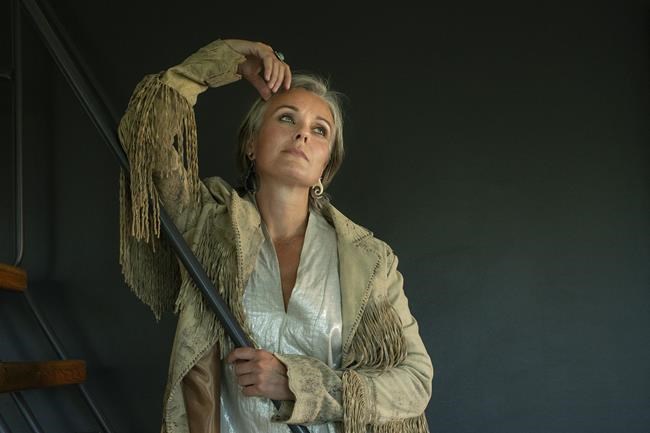NFB pulls ‘Inconvenient Indian’ from Sundance Film Festival and further distribution
Advertisement
Read this article for free:
or
Already have an account? Log in here »
To continue reading, please subscribe:
Monthly Digital Subscription
$0 for the first 4 weeks*
- Enjoy unlimited reading on winnipegfreepress.com
- Read the E-Edition, our digital replica newspaper
- Access News Break, our award-winning app
- Play interactive puzzles
*No charge for 4 weeks then price increases to the regular rate of $19.00 plus GST every four weeks. Offer available to new and qualified returning subscribers only. Cancel any time.
Monthly Digital Subscription
$4.75/week*
- Enjoy unlimited reading on winnipegfreepress.com
- Read the E-Edition, our digital replica newspaper
- Access News Break, our award-winning app
- Play interactive puzzles
*Billed as $19 plus GST every four weeks. Cancel any time.
To continue reading, please subscribe:
Add Free Press access to your Brandon Sun subscription for only an additional
$1 for the first 4 weeks*
*Your next subscription payment will increase by $1.00 and you will be charged $16.99 plus GST for four weeks. After four weeks, your payment will increase to $23.99 plus GST every four weeks.
Read unlimited articles for free today:
or
Already have an account? Log in here »
Hey there, time traveller!
This article was published 22/12/2020 (1799 days ago), so information in it may no longer be current.
The National Film Board is pulling Michelle Latimer’s documentary “Inconvenient Indian” from distribution and its upcoming screening at the Sundance Film Festival.
The decision comes after the accuracy of the filmmaker’s Indigenous identity was called into question last week.
In a statement Tuesday, the NFB said it held conversations with the Indigenous participants who appeared in the documentary, its Indigenous Advisory Group, and producer Jesse Wente.

The organization said it will continue a dialogue over the coming weeks and months with Indigenous communities to “explore an accountable path forward for the film,” which is based on Thomas King’s award-winning book.
Latimer had previously said she was of Algonquin, Metis, and French heritage, from the Kitigan Zibi Anishinabeg and Maniwaki area in Quebec, but a CBC investigation last week challenged those claims and raised issues over her self-identification.
The filmmaker has since said she “made a mistake” in naming Kitigan Zibi as her family’s community before verifying the linkage. In a statement, she said she has reached out to elders and community historians to receive guidance and obtain verification.
On Monday, Latimer resigned as director of “Trickster,” the Indigenous CBC-TV series she co-created.
“I stand by who I am and by my family’s history, but I also understand what is being asked of me,” Latimer said in a Facebook post explaining her resignation from the show, which tells the story of a teenager from Kitimat, B.C. who discovers he has magical powers passed down through generations.
NFB is among the Canadian film institutions that provide financial support for Indigenous-led projects reacting to the controversy, saying it’s committed to protocols developed by imagineNATIVE and the Indigenous Screen Office.
“Indigenous stories must be told by Indigenous creators,” the NFB said in its statement Tuesday.
“Inconvenient Indian” was a breakout success at the Toronto International Film Festival in September where it won two of the top prizes.
The film was set for Canadian distribution in 2021 and was scheduled to screen at Sundance in January.
This report by The Canadian Press was first published Dec. 22, 2020.



